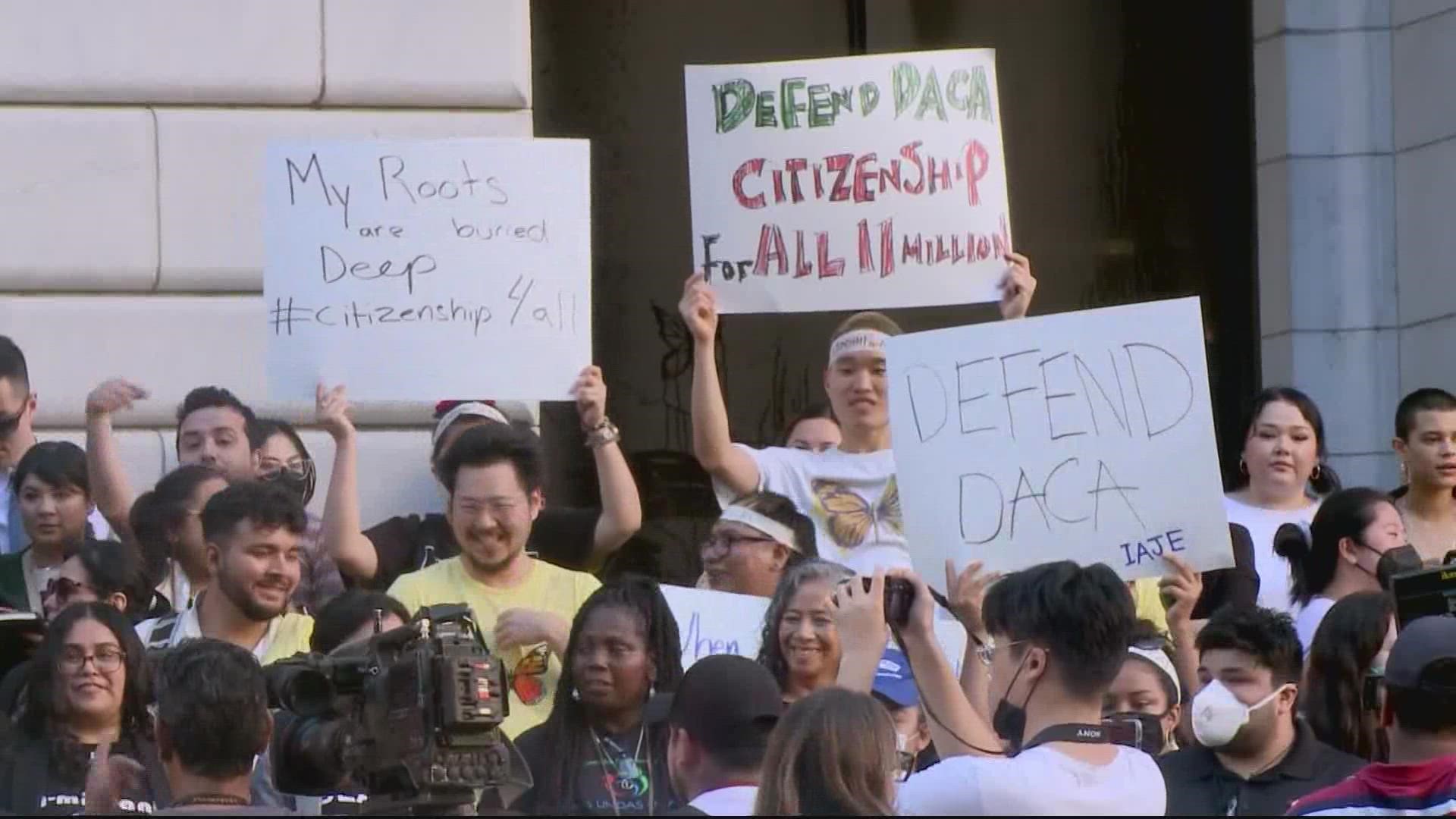PRINCE WILLIAM COUNTY, Va. — Editor's Note: The video above was published on June 15, 2022.
Jennifer Romero's future in the U.S. is once again being threatened by a legal battle regarding the Deferred Action for Childhood Arrivals program.
A decade after DACA was established under the Obama administration, its legality is being determined by a New Orleans federal court where today advocates from all over the country gathered.
The case before three judges in the 5th U.S. Circuit Court of Appeals could impact hundreds of thousands of immigrants who rely on the benefits like protections for deportation and work authorization.
"It's just crazy that we have to live through this all over again," says Romero who is a resident in Prince William County, Va. "The country that we grew up in is the one rejecting us."
There are currently more than 611,000 immigrants enrolled in DACA according to U.S. Citizenship and Immigration Services. 16,500 of them reside in D.C., Maryland, and Virginia according to USCIS.
Last July, a Texas federal judge ruled DACA to be unlawful, blocking new applicants but allowing current enrollees to continue with the protections.
Now advocates fear that if the court upholds the Texas ruling, immigrants like Jennifer could lose their benefits entirely.
"We are tired of having to be resilient, we want to make sure we continue living a thriving life," said Romero to WUSA9. Romero's family migrated from Mexico to the United States. Virginia is the only home she knows, and it is the place where she continues to advocate for immigrant rights. Her younger brother is starting an information technology career and she says she worries about his future being interrupted by the upcoming ruling.
In the lawsuit brought forth by Texas and other states, they argued that DACA was an executive overreach and that it places a burden on states because of the number of social services used by immigrants under the program.
Jorge Benitez-Perez, a Maryland-based activist who was in today's hearing said that the lawyer's representing the state of Texas did not provide numbers to back their argument.
"As of today we have yet to see the proof that DACA recipients using all these social services, wasting all these millions of dollars, there were no numbers," said Benitez-Perez.
The ruling could be made in the upcoming days or months. It is still uncertain whether the U.S. Supreme Court could potentially take up the case, however, three justices have previously hinted in a dissent that they believe DACA to be unlawful.

